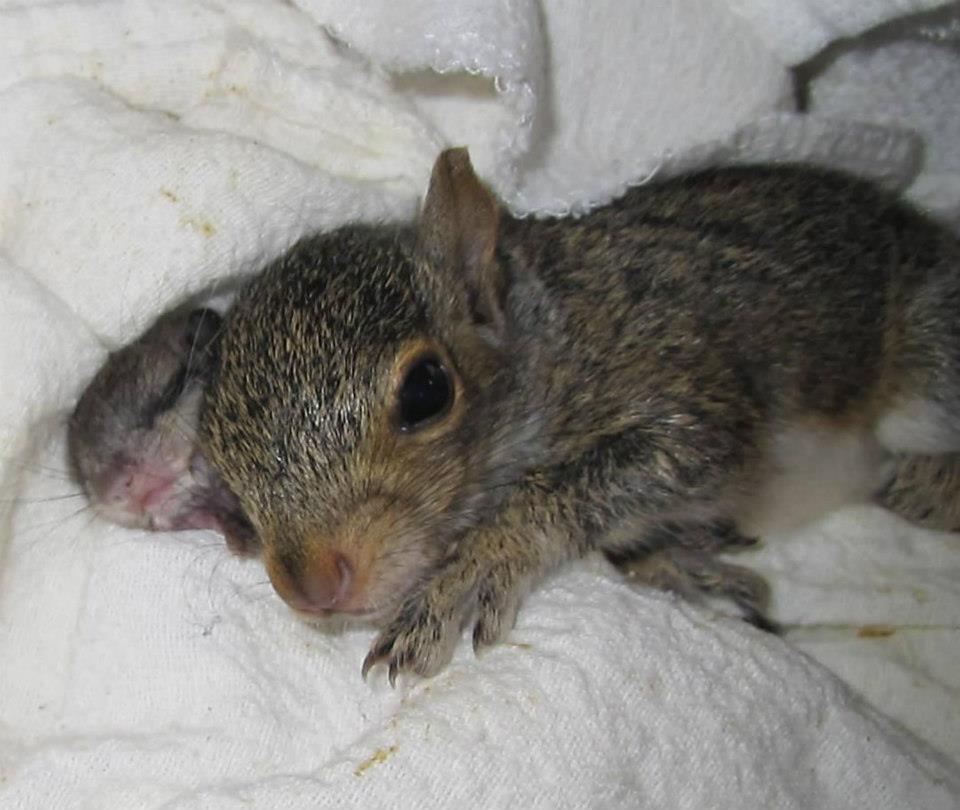Female deer (does) typically have twins and sometimes triplets beginning in April each year. Since the tiny fawns are unable to outrun a predator, a doe will “park” her babies in separate locations to keep them safe while they are unattended. If you find a “parked” baby — curled up peacefully — leave it alone! A healthy fawn that is curled up asleep in the “fawn” position is not orphaned. They can be parked for hours at a time, and observers may not see the mother come back during the day to check on the babies. In fact, you should avoid the temptation to check on the fawn frequently, as the presence of humans will keep the doe from returning to her fawn. Parked fawns are moved from time to time; if the fawn is still in the same place the next day, is crying, or is laying down flat on its side, it is most likely in need of help.
If the fawn has no visible injuries and has been moved during your search for help (i.e. before you realized it was safely parked), put the baby back where it was found and wait until the next day to see if its mother will return for it. If the fawn is bleeding, obviously injured, or displaying other signs of trauma, it will need immediate help.
PLEASE exercise caution when capturing a fawn. The simple act of chasing and catching a fawn can kill it even when no injuries are present. Deer that have been chased can suffer from a condition called “capture myopathy,” which can lead to large-scale muscle damage and even death; capture myopathy can only be treated with prompt medication and subsequent weeks of intensive therapy. So during capture efforts, please try to keep the fawn as calm as possible at all times and get it to a licensed rehabilitator immediately.
If a fawn has injuries, has been hit by a car, or has been chased for any reason (whether injuries are visible or not) please help the fawn receive immediate care from a licensed rehabilitator. Fawns are very fragile creatures and often need medical treatment immediately if they are to survive, even if the condition is not visible to the naked eye. Call us ASAP at 864-715-2171!



